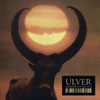Ulver, "Shadows of the Sun"
 Dark, brooding music from Norway usually involves corpse paint and an obscure relationship with Satan or other so-called dark forces; indeed, restraint and delicacy are hard to come by in the world of spiked gauntlets and troll vocalists. On the other hand, bands like Ulver write albums like Shadows of the Sun, demonstrating that fragile arrangements and understatement are often more oppressive than any heavy-handed guitar riff.
Dark, brooding music from Norway usually involves corpse paint and an obscure relationship with Satan or other so-called dark forces; indeed, restraint and delicacy are hard to come by in the world of spiked gauntlets and troll vocalists. On the other hand, bands like Ulver write albums like Shadows of the Sun, demonstrating that fragile arrangements and understatement are often more oppressive than any heavy-handed guitar riff.
Jester
Ulver have been reinventing themselves over the past 14 years, providing substantially varied records that would please everyone from the black metal enthusiast to the Vangelis junky. When the band's reach exceeds its grasp, the results are shaky at best, but when their focus overrides any tendency towards flamboyance, they're just as likely to seem brilliant. Shadows of the Sun represents their brilliance; despite a number of contributors and a string quartet, this record is ascetic and tightly knit. It resonates and hums meditatively, avoiding bombast in favor of careful dynamics and subtle crescendos. The environment of sound they build over 40 minutes is lethargic and murky, beginning with the icy "Eos." The simple melody of a cathedral-like organ burns slowly beneath Kristoffer Rygg's half-whispered, half-sung vocals before Pamelia Kurstin's beautiful theremin playing elevates the song and adds an oddly enchanting quality to it. By the time the string quartet has entered, it is difficult to distinguish the various instruments from each other as they all breathe together and create an immense gravity that gives the song an almost religious quality.
"Eos" makes the plain this album's strongest and weakest points. The arrangements are, from start to finish, elegant and simple without ever being dull. The lyrics, however, always leave a little to be desired. Rygg's voice is a pleasant tenor, but his poetry is sometimes over-simple and sometimes outright silly. As a human instrument he adds a priceless depth to many of the record's best songs (especially "All the Love"), but as a man of words he often fails to invoke much more than romantic idealism or youthful wonder. Nevertheless, songs such as "Vigil" call to mind hopeless scenarios and impossible odds rather than the vibrancy of life. "Vigil" in particular utilizes chanted vocals and edited sounds to evoke desolation and destruction; Christian Fennesz's contributions to the track are well-employed. As the tension of that track breaks, the swirling title track takes over and establishes a stasis that would not be as effective if it weren't for the way the band arranged these songs and drew them together.
Also of note is the band's exemplary cover of Black Sabbath's "Solitude." With melody and rhythm intact, Ulver take the song apart piece by piece and reassemble it with war drums, ravaged vocal chords, and a muted trumpet performance that speaks of more loneliness and pain than any flute ever could. I had not paid any attention to the tracklisting the first time I listened to this and when the cover came on it was both a shock and a welcome surprise. It fits in with the rest of the record and though it is perhaps the most conventionally arranged song on the album, it almost comes as a relief. The familiar bass line breaks up the suffocating elements of the record and give it a liveliness it would not have without the cover. The final songs are filled with extended string notes and bass-heavy piano performances that are as crushing as Sabbath's heaviest riffs; it is an uneasy ending to a record, but a fitting one. As morose as these songs are, I find myself returning to them over and over again. Gloom-ridden as it is, Shadows of the Sun is a spellbinding blend of careful composition and exact production.
samples:
- All the Love
- Vigil
- Solitude (Black Sabbath cover)



